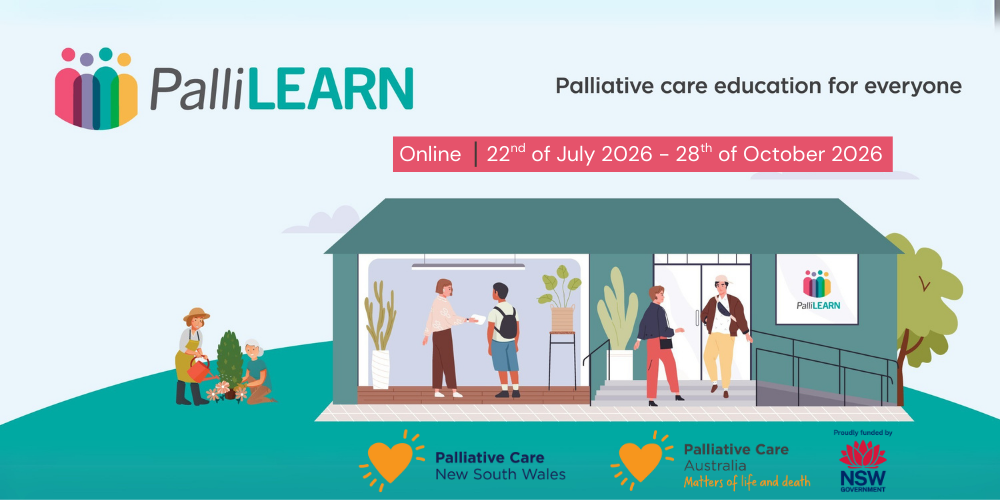
Sounds to soothe the soul
- by Kate Bowman
- September 17, 2024
Soothing sounds of a harp are now helping to ease the pain of some seriously ill and palliative patients at Murdoch’s St John of God Hospice.
Certified clinical musician Chloe Beaumont volunteers there one day a week and plays a harp slightly smaller and more portable than the traditional. She plays harp for the way sound resonates through the body.
Chloe first learned about the therapy when she met the pioneer of therapeutic harp in Australia, Peter Roberts. Peter is the creator of the much smaller reverie harp which is able to be played with barely any training and is used in some palliative care services in New South Wales.
“When I saw Peter Roberts doing this at the bedside, providing a harp vigil to help people pass or to just put them to sleep, I thought I could do that because I’ve had musical training, and I could learn harp.”
Chloe spent the next two years in Buenos Aires studying the harp with Oscar do Campo the teacher at the Conservatorium of Music and then took an accredited harp certification course to become a Clinical Musician.
The course taught her to play with feeling and to connect heart to heart with her patient; how to adjust the music to the patient’s needs and find which key or mode would soothe their anxiety and help them to sleep.
The course included more than 100 hours of voluntary harp work at the bedside and 10 workshops to learn about palliative care in a hospice.
“Over the last five years I have been playing my harp at the bedside of five hospitals, whether for a highly anxious patient with Alzheimer’s disease, a patient in palliative care or providing a harp vigil for the family with a loved one making their final journey.”
“I can put people to sleep, I can lower their rapid breathing with entrainment. I start at the same slow pace as their breathing and I slowly bring them down so that they go to sleep. It’s the same with someone who is fearful and at the end of their life journey.
“It’s a matter of finding the right key because each of us are different.”
Chloe says finding that key is trial and error.
“I assess the situation they’re in by looking at everything that’s in the room, the patient, if they’re breathing very rapidly or whether they’re groaning or twitching. You have to read all these things.
“For people who are dying, I have medieval music which has long pauses in the music and is arhythmic so in their minds they can’t latch on to anything. It’s like a musical phrase, like a wave coming into the shore and then it peters out in the sand and there’s silence and then another pause. It’s music from the monasteries in Europe.
“Mainly, when I go into a room and the person is awake, I usually ask them, how would you like some soothing, comforting music?”
She says that most people are accepting – often simply because it is nice, soothing music rather than something spiritual. The process can be very helpful for families to come together when a loved one is dying.
“The tension in the room when I come in is palpable, so I start very slowly, and it’s very meditative music. It’s very slow, and I can help them let go of all that anxiety.
“And by the end, I usually play for about an hour. Everyone in the room is at peace and love is a dominant energy in the room.
“It’s finding the right key to relax the person and help them just let go, unbind from life.”
“The response has been so positive.”
Original story credit: Allen Newton, Have-a-go news
Upcoming Events
- APRIL 14, 2026
- 9:30 AM - 3:30 PM
Palliative Care Volunteer Biography Service Training
Palliative Care Volunteer Biography Service Training Are you looking to exp...
Read more- JUNE 2, 2026
- 10:00 AM - 12:00 PM
NSW Network of Managers of Palliative Care Volunteers – June meeting
The role of the Network is to ensure best practice for Managers of palliati...
Read more- JULY 22 - OCTOBER 28, 2026
- 11:00 AM - 12:00 PM
PalliLEARN – Free Palliative Care Education for Community & Volunteers – Jul to Oct 2026
Welcome to PalliLEARN Introductory easy-to-understand courses for building ...
Read moreBecome a member of Palliative Care NSW
Palliative Care New South Wales is the peak body in NSW representing palliative care providers and those with an interest in palliative care. Palliative Care New South Wales is a member of the national peak body Palliative Care Australia.
Join today and receive discounts, benefits and more!
Special member rate available for volunteers.
Subscribe to our eNews
Be the first to know our latest new, events, and research!
SUBSCRIBE TO ENEWS





